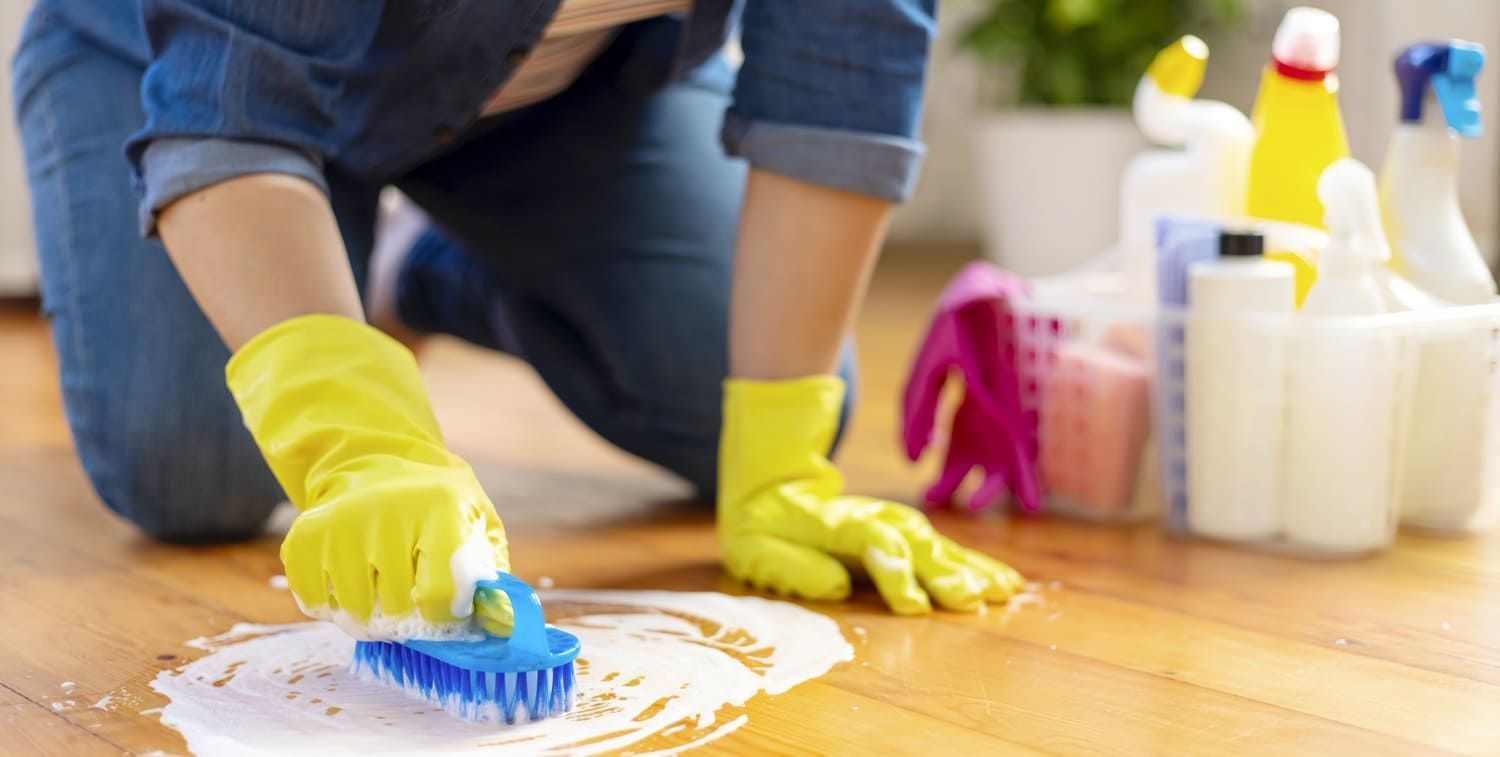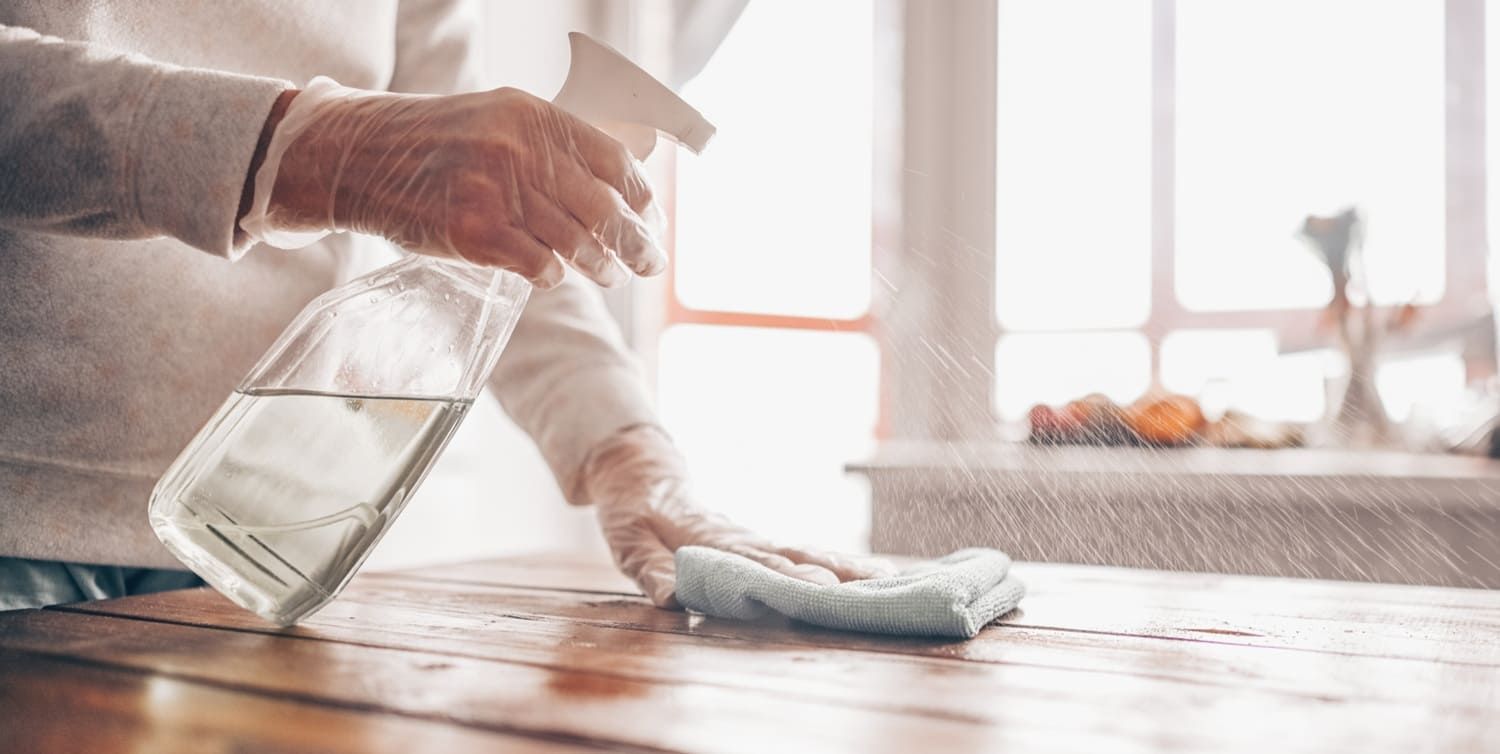Natural vs. Chemical Home Cleaners: Which is Right for You?
Choosing the right home cleaner can be a daunting task. With so many options available, it's easy to feel overwhelmed.
Natural home cleaners and chemical cleaners each have their own benefits and drawbacks. Understanding these differences is key to making an informed choice.
Natural cleaners are often praised for their eco-friendly and non-toxic properties. They are made from plant-based ingredients and essential oils.
On the other hand, chemical cleaners are known for their powerful cleaning abilities. They often contain synthetic ingredients that can tackle tough stains and bacteria.
This article will explore the pros and cons of both types of cleaners. By the end, you'll know which is best for your home and family.

What Are Natural Home Cleaners?
Natural home cleaners are crafted with ingredients derived from nature. They typically include plant-based components and essential oils.
These cleaners are known for their biodegradable and eco-friendly nature. They break down easily without leaving harmful residues behind.
Some common ingredients found in natural home cleaners include vinegar, baking soda, and lemon juice. Essential oils like tea tree and lavender are often added for fragrance and antibacterial properties.
Key characteristics of natural home cleaners include:
- Plant-based ingredients
- Biodegradable and eco-friendly
- Include essential oils for scent
These cleaners are not only great for the environment but also safer for families. Their non-toxic nature makes them a popular choice among parents and pet owners. Many people prefer these alternatives because they reduce exposure to harmful chemicals while ensuring a clean home.
What Are Chemical Home Cleaners?
Chemical home cleaners are formulated using synthetic ingredients. These products often contain harsh chemicals for potent cleaning power.
They are designed to efficiently combat bacteria, viruses, and tough stains. These cleaners rely on industrial chemicals to deliver quick and powerful results.
Common components of chemical cleaners include bleach, ammonia, and artificial fragrances. These ingredients enhance cleaning effectiveness but can pose health risks.
Notable features of chemical home cleaners include:
- Synthetic and industrial ingredients
- Highly effective against germs
- Strong artificial scents
While chemical cleaners are widespread and convenient, they can cause skin or respiratory irritation. Their use can contribute to indoor air pollution, affecting home air quality. Despite these concerns, their availability and strong cleaning capabilities make them a popular choice among consumers seeking fast results.
Key Differences: Natural vs. Chemical Cleaners
Natural and chemical cleaners differ mainly in their composition. Natural cleaners use plant-based ingredients, while chemical cleaners rely on synthetic compounds.
This distinction in ingredients affects both their effectiveness and impact. Chemical cleaners are known for their fast action on tough stains. In contrast, natural cleaners may require more effort for the same results.
Health and safety also set these two apart. Natural cleaners are typically safer for homes with children or pets. Chemical cleaners, however, can cause irritation or allergic reactions due to their harsh components.
Another key difference is their environmental impact. Natural cleaners are biodegradable and often come in recyclable packaging. Conversely, chemical cleaners can contribute to pollution and require careful disposal.
In summary, major differences include:
- Ingredients: natural (plant-based) vs. chemical (synthetic)
- Safety: natural (less irritating) vs. chemical (more potent)
- Environmental impact: natural (eco-friendly) vs. chemical (potential pollution)
Understanding these distinctions helps consumers make informed choices based on their needs and values.
Effectiveness: How Do They Compare?
When comparing effectiveness, it's important to consider the type of cleaning task. Chemical cleaners often excel in heavy-duty cleaning. They are especially effective at removing tough stains and killing bacteria and viruses.
Natural cleaners also offer cleaning benefits, though the results may vary. Ingredients like vinegar and tea tree oil provide antibacterial properties. However, they might not work as quickly or powerfully as their chemical counterparts.
There are areas where natural home cleaners shine. They can be used on various surfaces without causing damage or leaving residues. Additionally, the pleasant scents from essential oils add an aromatic benefit to cleaning.
Here's a comparison of their effectiveness:
- Stain Removal: Chemical cleaners are usually more potent.
- Antibacterial Properties: Both can be effective, but chemical cleaners act faster.
- Surface Compatibility: Natural cleaners are generally safe for most surfaces.
Ultimately, the choice depends on the cleaning needs and priorities of the user.
Health and Safety Considerations
Health and safety are crucial when choosing cleaning products. Chemical cleaners can include harsh ingredients, which may cause irritation. People with sensitive skin or allergies may face increased risks.
In contrast, natural home cleaners often consist of plant-based ingredients. These are typically gentler, reducing the chances of skin irritation. Additionally, they usually emit less harmful fumes, providing a healthier indoor environment.
Some chemical cleaners contain volatile organic compounds (VOCs). VOCs can worsen indoor air quality, affecting respiratory health. Natural cleaners, by design, aim to prevent these issues.
For families with children and pets, non-toxic options might be safer. Here's why:
- Irritation: Chemical cleaners may cause skin and eye irritation.
- Fumes: Chemical fumes can lead to respiratory problems.
- Allergens: Natural cleaners are often hypoallergenic.
Making informed choices can enhance home safety and contribute to a healthier lifestyle. Consider these aspects when choosing between natural and chemical cleaners.
Environmental Impact: Green Cleaning Products and Sustainability
Choosing the right cleaning products goes beyond just effectiveness. Environmental impact is a significant concern with any product. Chemical cleaners often contribute to pollution. This is due to synthetic components that don't break down easily.
In contrast, green cleaning products focus on sustainability. These products often use biodegradable ingredients. The goal is to minimize harmful environmental effects. They also aim to reduce water and air pollution.
Packaging also matters. Many eco-friendly products use recyclable or reusable containers. This approach helps decrease waste significantly. Supporting such products aligns with sustainable living values.
When choosing cleaners, consider environmental certifications. Look for labels like Green Seal or EcoLogo. These certifications assure the product meets high environmental standards. When you opt for green cleaning products, you support ecological health. This choice can reduce your carbon footprint. Plus, it can promote a cleaner planet for future generations.

Cost Comparison: Are Natural Cleaners More Affordable?
Cost is often a deciding factor when choosing cleaning products. Natural home cleaners might appear costly upfront. However, they can save money in the long run. They are often multi-purpose, reducing the need for multiple products.
Chemical cleaners can be cheaper at first glance. Yet, they may have hidden costs. Consider health issues or environmental damage. These factors can make them more expensive over time.
Key advantages of natural cleaners include:
- Versatility: Fewer products needed.
- DIY potential: Use common household items.
- Long-term savings: Fewer health risks and environmental impacts.
By evaluating both upfront and hidden costs, you can make a smarter choice.
DIY Natural Home Cleaner Recipes
Creating your own natural home cleaners is easy and cost-effective. Many of the ingredients might already be in your pantry. DIY cleaners can be customized with your favorite scents.
One simple recipe is a vinegar and water solution. It’s effective for cleaning glass and other surfaces. Essential oils add an aromatic touch.
Vinegar-Based All-Purpose Cleaner
Ingredients:
- 1 cup water
- 1 cup distilled white vinegar
- 20 drops of essential oil (e.g., lemon, lavender)
Instructions:
- Mix ingredients in a spray bottle.
- Shake well before each use.
- Test on a small area first.
For more stubborn stains, baking soda is your go-to ingredient. It works well in combination with other natural substances.
Baking Soda Paste
Ingredients:
- 1/2 cup baking soda
- 1/4 cup water
- 5 drops tea tree oil
Instructions:
- Combine baking soda and water to form a paste.
- Add tea tree oil for antibacterial properties.
- Apply paste to the dirty area and scrub.
These DIY solutions offer a safer and eco-friendly alternative. Customizing these recipes can make cleaning a more personal and enjoyable task.
How to Choose the Right Cleaner for Your Home
Selecting the best cleaner involves several considerations. First, identify your cleaning priorities. This will guide your decision.
Evaluate the specific needs of your home and family. Consider allergies, children, and pets. Safety should always be a top concern.
Here are factors to consider:
- Effectiveness against stains and germs
- Safety for kids and pets
- Environmental impact and sustainability
Compare natural and chemical options based on these factors. Assess which align best with your lifestyle and values. Making an informed choice can lead to a healthier home and happier family.
Frequently Asked Questions About Natural and Chemical Cleaners
Choosing between natural and chemical cleaners often raises questions. Which type is best for killing germs? Chemical cleaners typically excel in this area due to their strong formulations.
Are natural cleaners really effective? Yes, many contain potent ingredients like vinegar and essential oils known for their antibacterial properties.
Here are common inquiries:
What’s the main difference between natural and chemical home cleaners?
Natural cleaners are made from plant-based or biodegradable ingredients like vinegar, baking soda, or essential oils. Chemical cleaners often contain synthetic ingredients and stronger disinfectants. The choice depends on your needs—natural is gentler and eco-friendly, while chemical is often more powerful on tough grime and bacteria.
Are natural cleaners effective for disinfecting surfaces?
Natural cleaners can remove dirt and some germs, but they may not kill as many bacteria or viruses as chemical disinfectants. If your goal is deep sanitization (e.g., during flu season), chemical options may be more effective. However, regular use of natural cleaners can still maintain a clean and healthy home.
Are chemical cleaners dangerous for kids or pets?
Many chemical cleaners contain strong ingredients that can cause skin irritation or breathing issues if used improperly. Always follow safety instructions, and keep products out of reach. For families with small children or pets, natural alternatives may be a safer choice for everyday use.
Can I make my own natural home cleaners?
Yes! DIY natural cleaners using ingredients like vinegar, baking soda, and lemon juice are affordable, safe, and customizable with essential oils. Just be cautious—some natural ingredients shouldn't be mixed (like vinegar and hydrogen peroxide), so follow trusted recipes.
Do natural cleaners work on mold or mildew?
Natural options like tea tree oil or hydrogen peroxide can help with light mildew, but heavy mold problems typically require stronger, chemical-based cleaners or professional treatment to prevent health risks and property damage.
Which type of cleaner is better for the environment?
Natural cleaners are biodegradable and often come in recyclable packaging, making them more environmentally friendly. Many chemical cleaners contain toxins that can impact waterways and ecosystems, so choosing natural can help reduce your environmental footprint.
How do I choose the best cleaner for my home?
It depends on your priorities—if you value eco-conscious, skin-safe ingredients, go natural. If you need deep sanitation or industrial strength, choose chemical. Some homeowners use both for different purposes. For tough cleaning jobs, contact Oceancare Products Store for eco-friendly professional cleaning services that work.
Addressing these questions helps in making informed decisions. Both options have their pros and cons. Understanding these can assist you in selecting the right cleaner for your needs.
Conclusion: Making the Best Choice for Your Home and Family
Oceancare Products Store, offering the Best Home Cleaners, helps you make smarter choices for a healthier home. Choosing between natural and chemical home cleaners depends largely on personal values and cleaning goals. If reducing toxic exposure is a priority, natural home cleaners may be the way to go. Consider the environmental impact of your cleaners. Opting for green cleaning products can support sustainability efforts and contribute to a healthier planet. Ultimately, evaluate your specific household needs. Factors such as health conditions, cleaning intensity, and budget play crucial roles. Make an informed decision that aligns with your family's values and prioritizes health and safety—and contact us if you have any questions!


